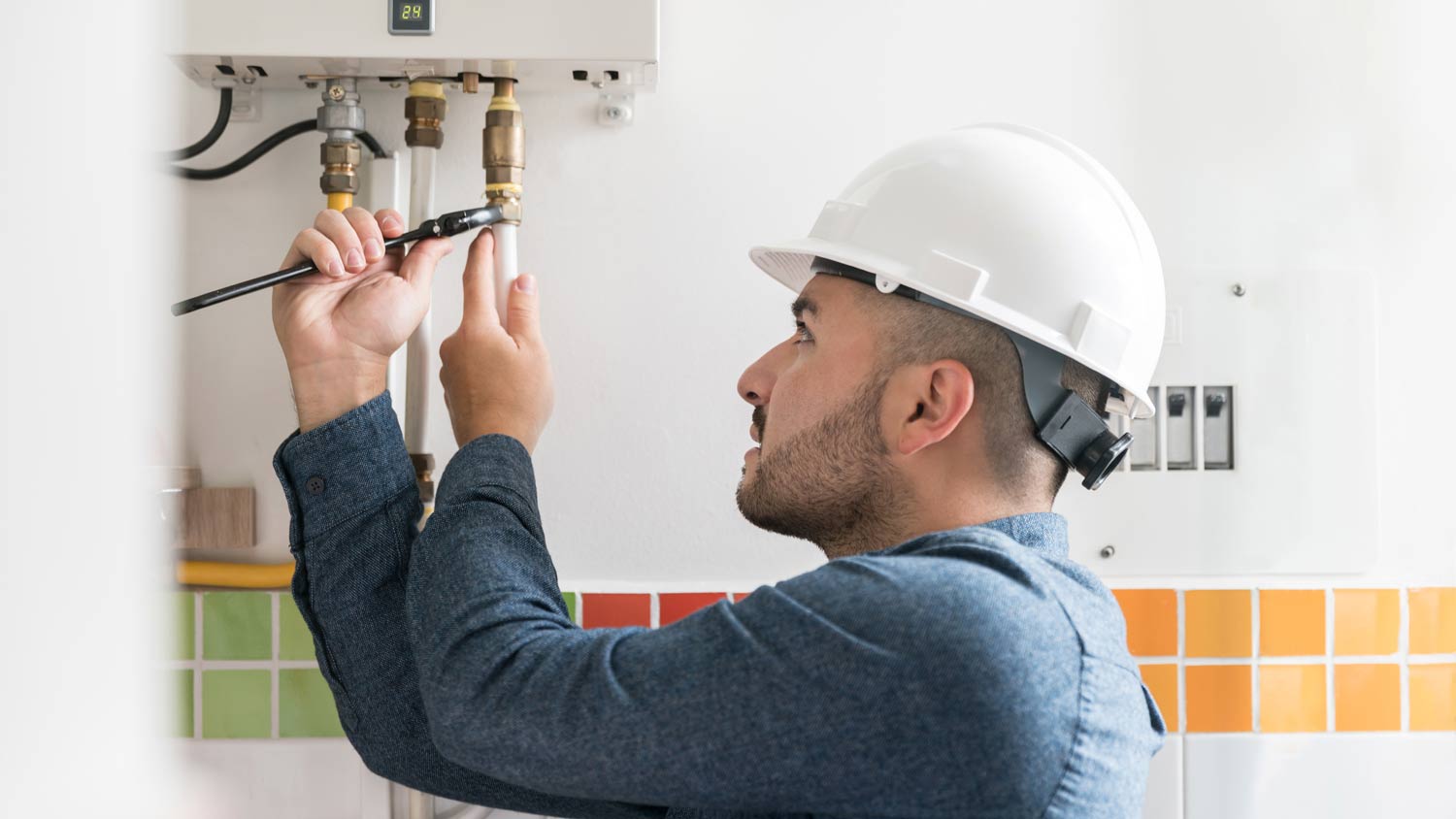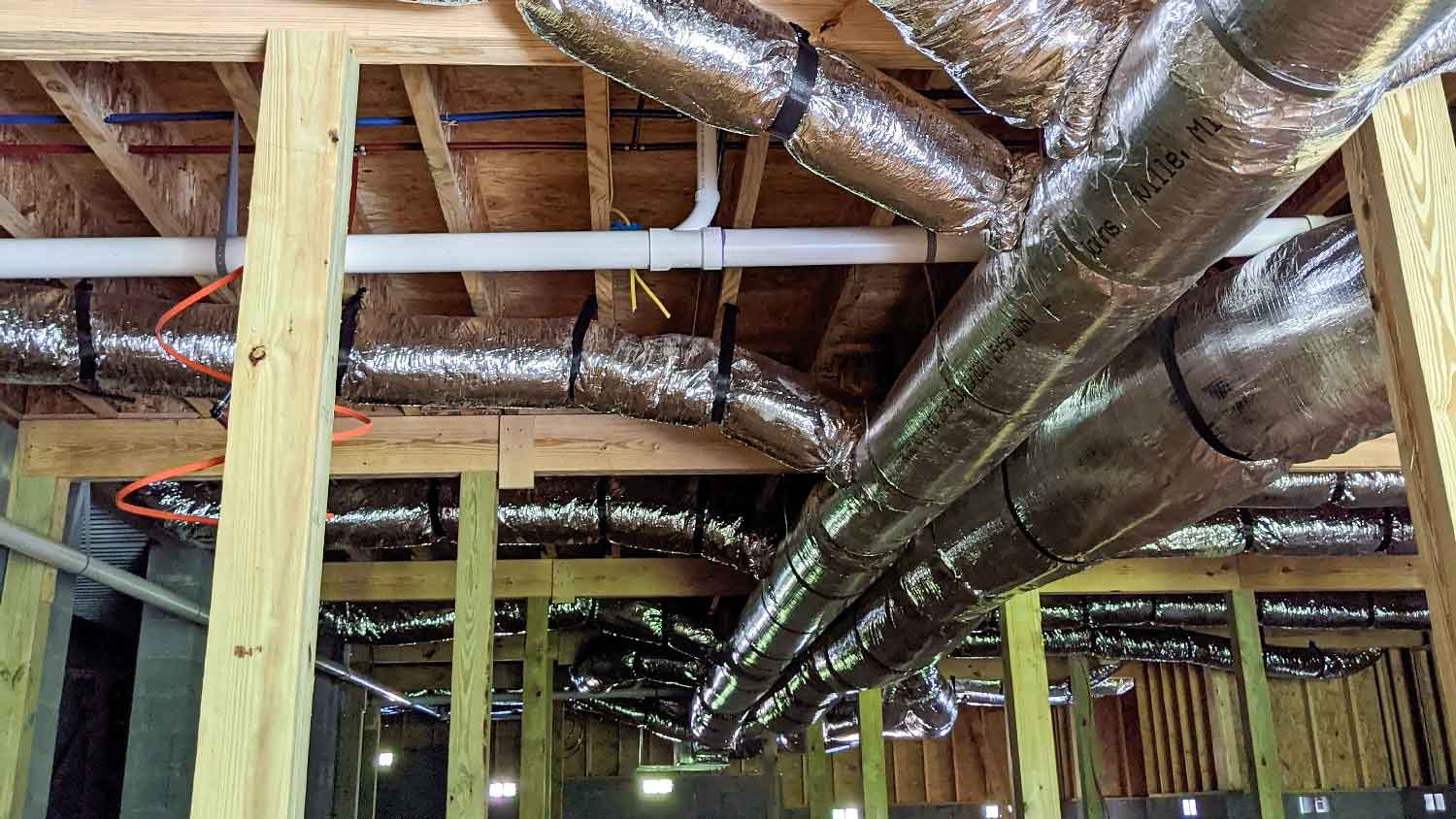
What you’ll pay in Columbus, OH, for furnace repairs depends on many factors. Here’s a breakdown of what can go wrong and the cost to fix those issues.
Boiler repair is dangerous, so leave it to the pros


If you hear a hissing, lose hot water, or find that your house isn’t heating up like it used to, you probably have a boiler issue on your hands. So, who do you call to fix your boiler? Well, the local professionals in your area may label themselves slightly differently according to their primary business, but a boiler repair and installation service will know exactly what to do. Make sure you hire a pro licensed to operate a boiler and years of experience. This could be a plumber, an HVAC technician, or—ideally—a specialized boiler repair pro.
These technicians are considered specialists for several reasons. Here are a few of them.
Boilers burn fuel to generate heat. That’s part of why they’re one of the most dangerous appliances in your home, and tinkering with them risks some extreme consequences. Professionals licensed to repair and operate boilers understand the important health and safety precautions to take before investigating or repairing it so that no one is at risk of harm—not even your house.
This one’s a no-brainer. You may think you know everything you need to know about your home, but a boiler is a complex beast. Professionals can determine what’s gone wrong and how to fix it better than any average homeowner or handyperson.
Maybe you need to heat your home before a big freeze or get the hot water running again ASAP. If you’re on a tight deadline (which most people are), purchasing and receiving the parts for your boiler repair can be your biggest challenge. Professionals will often have them on hand or have access to them quickly through their industry, getting the job started much sooner than you can do on your own.
Get your HVAC system serviced and inspected at least once per year. For extra peace of mind, call in a pro twice annually: once before the hottest months of the year and again before the coldest time of year.
It might be tempting to save yourself about $400, which is the average cost to repair a boiler. But the truth is, DIYing your boiler repair isn’t just a bad idea—it’s dangerous. Boilers are complex systems that involve a lot of heat and fuel, so one wrong move could create unexpected combustion. It’s best to hire a local boiler repair pro for any boiler service, repair, or installation.
That said, there are some easy DIY boiler maintenance tasks you can do on your own to make sure your system is running smoothly each year. Inspecting the vents, chimney, and pipes can help you spot any issues you need to call a pro about. You can also lubricate the circulating pump with oil, replace or clean the filters, and reset the pilot light on some models.

Some people have experience with boilers through other services they provide, like HVAC installation or general home maintenance tasks. But unless this person is specifically licensed to work with boilers, you don’t want them around yours. The biggest reasons are the safety risks it poses, the liability you may face if they injure themselves, and the fact that only a professional boiler service can complete the service from start to finish properly.
Your boiler tech will begin by entering your boiler room, investigating the unit, and discussing any issues with you. After that, they’ll make the necessary repairs (either in the same visit or a second one) until the project is complete and you have everything you need.
Since there are usually two types of boiler repair pros, this may come from a plumbing company or an HVAC company. Plumbers are licensed to work on boilers, but they mainly focus on their water disbursement. That means fixing leaks, unusual noises, pressure fluctuations, and pilot lights. An HVAC technician would be able to inspect the entire system for issues, which covers everything under the umbrella of your home’s heating and cooling systems.
According to Angi data, nearly 33% of customers report the most common oil boiler service is regular wear-and-tear maintenance. Other frequently reported problems are leaking or cracked boiler, not heating correctly, oil smell or weird noise, or malfunctioning pilot light.
Check out how your oil boiler problem stacks up against other Angi customers:
From average costs to expert advice, get all the answers you need to get your job done.

What you’ll pay in Columbus, OH, for furnace repairs depends on many factors. Here’s a breakdown of what can go wrong and the cost to fix those issues.

Discover the cost to install ductwork. Learn about average prices, cost factors, and tips to save money on your ductwork installation project.

Repairing ductwork in a crawl space is frustrating and difficult, which is reflected in the cost. Learn why limited access results in a premium cost beyond just a simple increase in labor hours.

Even when you're sweating up a storm on a hot day, your AC should keep its cool. Here's what to do when condensation on your AC signals larger problems.
How to clean your air conditioner depends on the unit type. Sometimes, a good hose-down is all you need if you have centralized AC. This guide can help with the cleaning process.

Tackling unwanted odors from indoor plants can be tricky. Learn how to use a carbon filter in your duct fan to improve air quality.